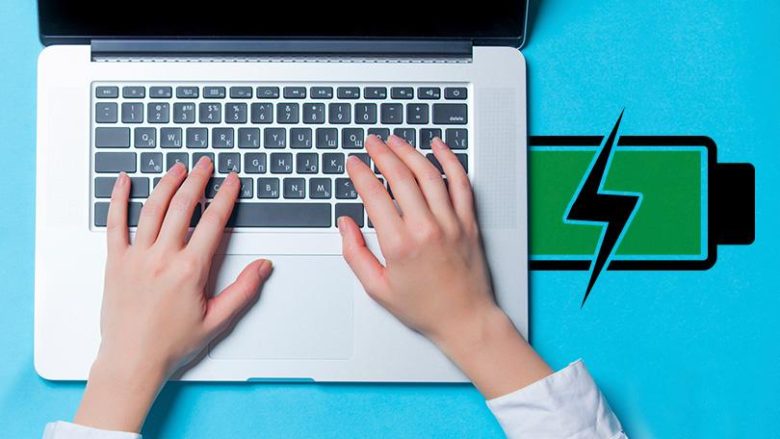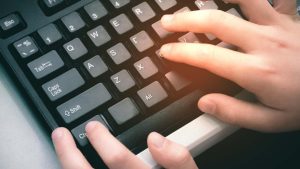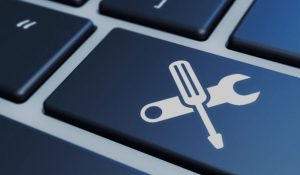Laptops are now essential for both work and study. They also provide entertainment. Over time, laptops can slow down and start to lose their spark. Laptops, like other devices, require some TLC to run smoothly. Understanding how to improve your laptop’s performance is important, whether you are a casual user of the device or someone who uses it daily.
Imagine being able to multitask seamlessly and having your machine load quickly. This is not just a fantasy. It’s possible to achieve this result with a few simple adjustments. We’ll dive into some practical tips to improve your laptop’s performance without spending a fortune or needing extensive technical knowledge.
Keep Your Laptop in Good Condition
Maintaining your laptop well is essential for its smooth operation. Your device will run more efficiently, allowing you to complete tasks faster and increase your productivity. Regular maintenance can prevent costly repairs in the future. Unchecked small issues can grow into larger problems requiring professional assistance or a replacement. Maintaining your laptop will also increase its life expectancy. You can save money by taking care of your laptop today.
Performance also impacts the user experience in a significant way. Slow response or frequent crashes can be frustrating and hinder your workflow. Security is also important; old software can be vulnerable. Updates are essential to keep your hardware and software safe from potential threats. By adopting healthy habits, you can ensure that your laptop will serve you for many years. It is important to prioritize its condition, not only for improved functionality but also for a more positive working environment.
Tips on Hardware and Software for Improved Performance
Upgrades to your hardware can result in significant performance gains. If you run several applications at once, consider adding more RAM. This upgrade will allow for improved multitasking and a smoother experience. SSDs are another game changer. Switching to an SSD will improve your boot time and application loading speed if you are still using a hard drive.
Keep all software up to date. Updates to the operating system often contain performance improvements that will speed up your laptop. Uninstalling unused software can drain your computer’s resources. Uncluttering your device will not only make it feel faster, but it can also reduce security risks. Using your task manager or the system settings, optimize startup programs. By limiting what starts at startup, you can access your desktop faster and be more efficient.
Cleaning and Maintenance Methods
Maintaining the performance of your laptop requires regular cleaning. Dust and grime accumulate quickly, particularly around the keyboard or vents. The display will look excellent with a microfiber cloth dampened in screen cleaner or water. To clean your device more thoroughly, use compressed air and turn it off. This process will help prevent overheating.
Do not forget the interior! If you feel comfortable, open your laptop up to clean dust off components. Be careful not to damage sensitive components. Keeping software up-to-date also ensures smoother operation. Check for updates regularly, both on the operating system and in applications. By removing unnecessary files and slow performance, disk cleanup software can help you free up space on your computer. Maintaining your laptop with simple maintenance techniques can extend its lifespan.
Battery Life Optimization
Laptop battery life is essential for all laptop users. A well-maintained battery allows you to remain productive while on the road. Adjust the screen brightness first. Dimming your display will extend the time you can use it without sacrificing visibility. Turn off Bluetooth and WiFi when you are not using them. Wireless connections drain your battery more quickly than you expect.
Use the power-saving features in your operating system. These settings adjust the performance automatically based on your activity, conserving energy when you are doing lighter tasks. Close any unnecessary background applications, which can continue to drain battery and resources. Consider keeping your laptop cool. Overheating will negatively affect battery life and efficiency. When working or playing, ensure that you have adequate ventilation to maintain the optimal temperature for your hardware and energy consumption.
Laptop Performance can be Affected by Common Mistakes
Most users tend to underestimate the importance of software updates. These can cause compatibility and security issues, which slow down your computer. Overcrowding your desktop with shortcuts or files is another common mistake. The cluttered interface can impact the loading time and affect organization.
A common mistake is to run too many programs at once. Each application that is open consumes resources and slows down performance. Ignoring background processes can also be harmful. Even when minimized, some applications will continue to run and drain CPU power without you knowing. Over time, a failure to manage storage efficiently can cause problems. Keep unnecessary files and outdated applications to save space. This slows down your computer. It is important to regularly review and clean out old data.
Troubleshooting Common Problems
It can be frustrating when your laptop stops working. Let’s face some common problems. Please check for any programs that might be using excessive resources if your computer is running slowly. To see which applications are consuming memory and CPU, open the task manager. A simple restart can sometimes work wonders. If you are experiencing connectivity issues, make sure that Wi-Fi has been enabled. Also, toggle the airplane mode on or off. If you still have problems, try reconnecting with a new network.
Are there frequent crashes? This could indicate that you have faulty hardware or drivers. Safe mode can be used to isolate the problem. Shut down your device immediately if you hear strange noises or if it is overheating. Cleaning out dust buildup may be the solution to your problem.
Conclusion
It’s not enough to clean your laptop every now and then. You need to create a routine that puts performance and durability first. Hardware upgrades and software improvements can turn your device into an efficient machine. To prevent slowdowns or crashes, regular maintenance is essential.
Battery life is a critical factor, particularly for users on the go. Simple adjustments will extend your battery’s life and improve mobility. Avoiding common mistakes by being aware of them can help you avoid making costly errors that may hinder your productivity. You can handle minor problems more efficiently if you know how to troubleshoot them. These tips will help you maintain your laptop for many years. Enjoy a better computing experience by following these tips.
FAQs
1. How often should my laptop be cleaned?
Cleaning your laptop is recommended every few months. Dust accumulation can affect cooling and performance.
2. How can I boost the speed of my laptop?
Upgrade RAM, if you can, and uninstall any unnecessary programs. You may also consider upgrading to an SSD for faster access.
3. How many applications can I run on my laptop before it slows down?
Running multiple applications at once can cause lags in your system.
4. Can I keep my laptop connected all the time to the power supply?
It’s a beneficial idea to unplug your laptop occasionally, even though modern models are better equipped to handle this than older ones. This will prevent battery degradation over time.
5. What should I do when my laptop crashes often?
Update drivers to fix many problems.




